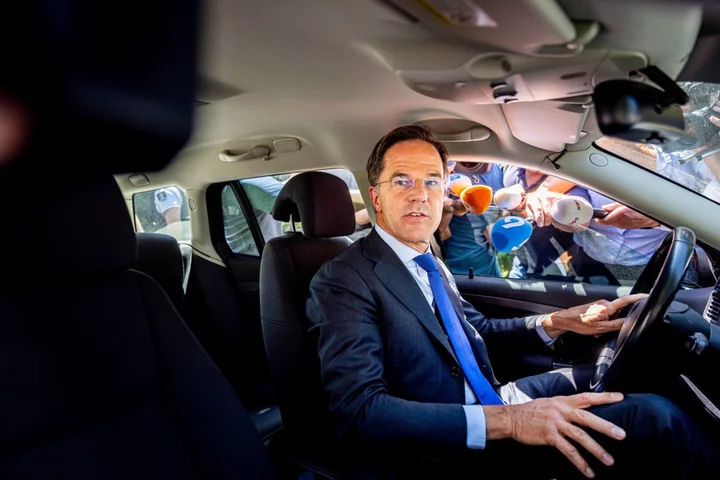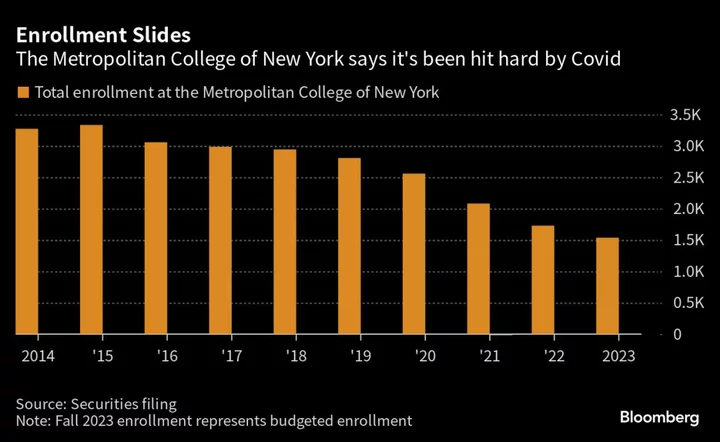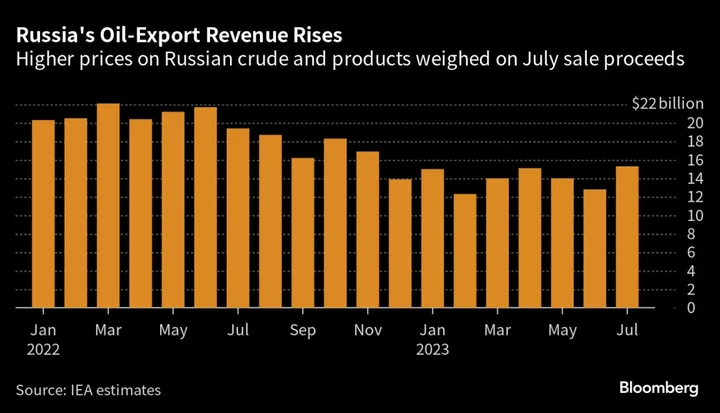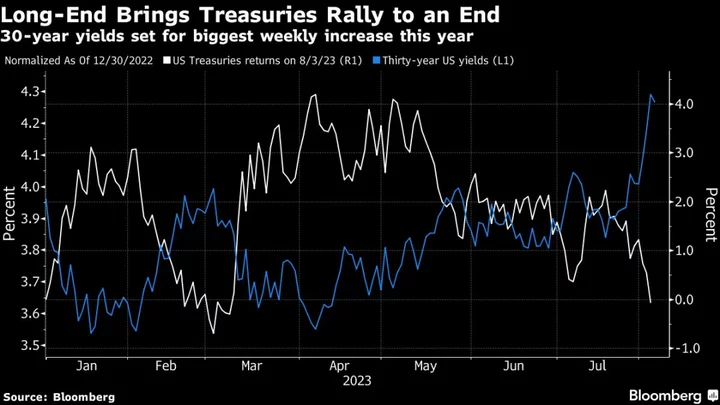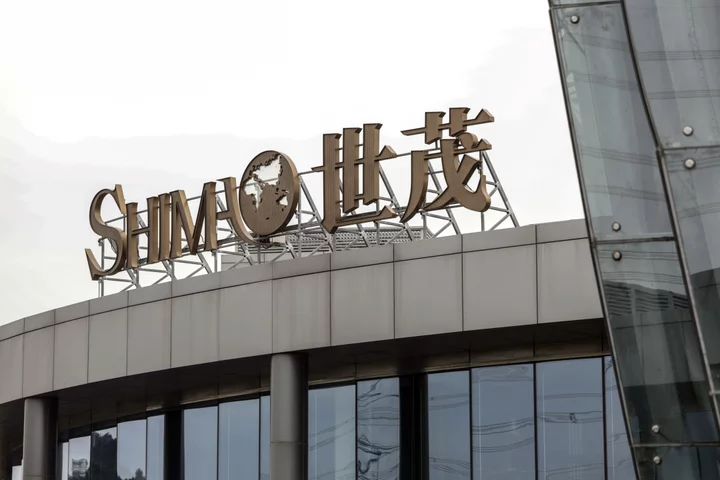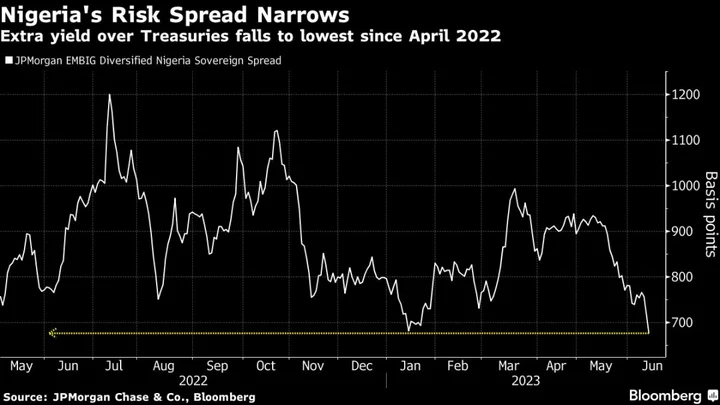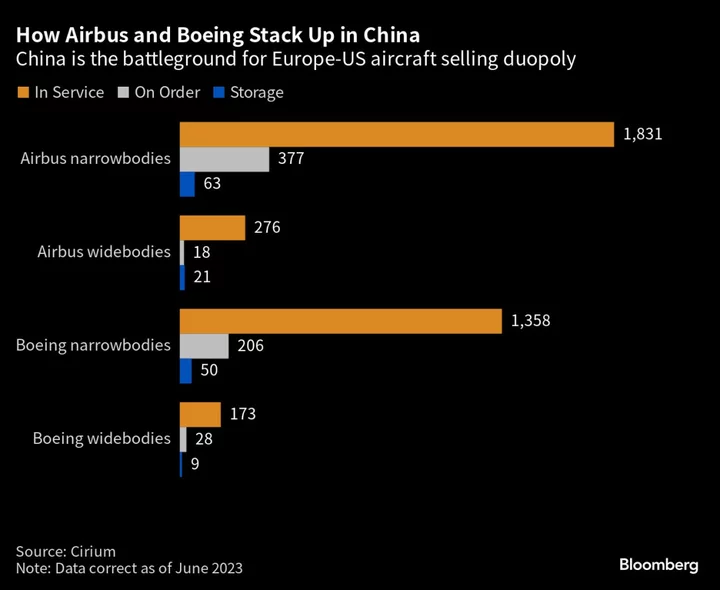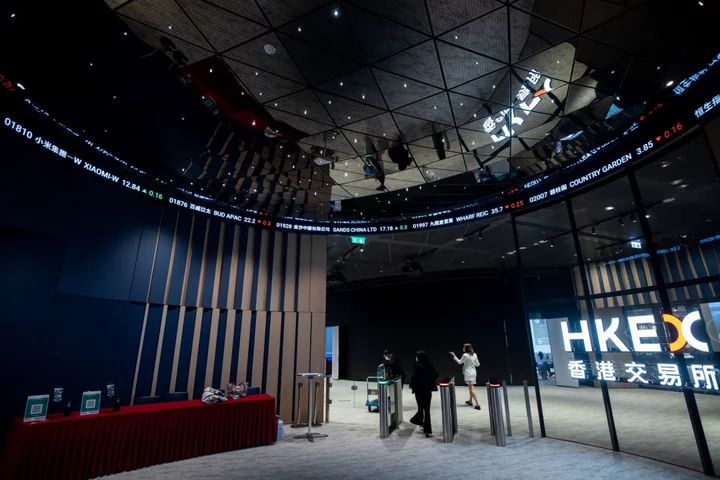Dutch Prime Minister Mark Rutte said he’s leaving politics after his coalition government collapsed amid infighting over migration policy, throwing the Netherlands in limbo.
Addressing Dutch lawmakers in The Hague on Monday, Rutte, 56, said he’s stepping down as leader of his party after 13 years in power. The country’s longest-serving premier had been facing a vote of no confidence in parliament later Monday, but the opposition withdrew the motion following his statement.
“Yesterday morning I decided that I will no longer be available as leader of the VVD,” he said. “After the election, when a new government will start, I will leave active politics.”
Rutte’s resignation brings down the curtain on a career that placed him at the heart of European Union politics as the bloc’s leaders wrestled with the debt crisis, which was raging when he took office in 2010, a global pandemic and the war in Ukraine. Rutte is a savvy operator who became a key player in the European leaders’ council due to his ability to shape the agenda and navigate the complex web of national allegiances.
“Rutte was the glue between government leaders because he had been there for so long and was able to move in different factions,” said Stefan Couperus, an associate professor of political science at Groningen University. “Rutte’s departure can create a vacuum in the EU. He formed the institutional memory of the group of heads of state, and that is disappearing.”
His departure marks a further changing of the guard in European politics, after Germany’s veteran chancellor, Angela Merkel, retired in 2021. It leaves the Hungarian populist Viktor Orban, who came to power a few months before Rutte, out on his own as the longest-standing premier in the EU.
Rutte’s move is also likely to change the Dutch political landscape, and leaves the country in a state of uncertainty until mid-November, when elections are expected to take place. Although it’s not clear who will replace him as party leader, the VVD may struggle to maintain its spot as the Netherlands’s biggest party.
Some potential contenders include Justice Minister Dilan Yesilgoz-Zegerius, Minister for Nature and Nitrogen Christianne van der Wal-Zeggelin, former party leader Klaas Dijkhoff and Former Health Minister and DSM CEO Edith Schippers, though they have yet to throw their hats in the ring. The party said it will present its leader candidate this week.
Rutte’s government collapsed abruptly on Friday after he gave his coalition an ultimatum to limit the right to family reunions for refugees from war zones earlier last week, staking his fourth coalition on his ability to force his partners into line on an issue that’s increasingly drawing greater attention in the country — immigration.
As Rutte prepared to address lawmakers on Monday, it was clear that he was on the brink, with some of his former coalition partners considering voting to oust him, according to people familiar with the matter, who asked not to be named discussing private conversations.
Bringing down the coalition was initially seen as a power play. His opponents said he’d pushed the country into a snap election in order to strengthen his own political position, betting that a stand on immigration would shore up support for him. But the move backfired as his former partners turned against him, raising the prospect of an undignified forced exit.
“There has been speculation in recent days about what motivates me,” he told lawmakers as he announced his departure. “The only answer to that is: the Netherlands.”
In some ways, the writing has been on the wall for Rutte for sometime now. He oversaw the worst Senate election results of his premiership this year as the Farmer-Citizen Movement, or BBB, became the biggest party in the Dutch upper house after opposing his government’s push to halve nitrogen emissions by 2030.
Rutte endured a slew of controversial issues in his four-term tenure. He was in charge during a scandal over childcare subsidies, which tipped thousands into poverty and triggered the collapse of his third cabinet, and has been battling with high inflation and an energy crisis over the past year. His government has also been dealing with issues including a lack of affordable housing and the deterioration in health care and education amid a chronic labor shortage.
After announcing his decision to exit politics, Rutte appeared cheerful, chatting with party leaders in parliament. He folded his hands in a ‘Namaste’ gesture to thank lawmakers who clapped after anti-migrant Freedom Party Chairman Geert Wilders thanked him “for his tireless efforts.”
Asked about the legacy he leaves behind, Rutte refused to characterize his 13-year reign, saying “others should do that.” He said he was not interested in a top job at an multinational body like NATO and will likely turn to teaching, which he currently does once a week at the Johan de Witt College in The Hague.
“Maybe I’ll do that for a few days,” he said.
--With assistance from Wout Vergauwen.
(Updates with a comment from a professor in fifth paragraph, more context from seventh paragraph.)

